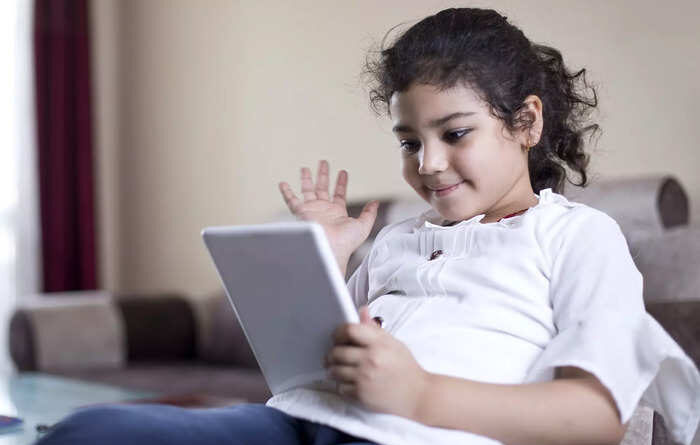Are you leading to destruction? Here’s what happens to kids when they’re exposed to social media early in life Business Insider India
Accidents are not just rumors. Researchers have been raising red flags for years, suggesting that too much screen time at a young age can have lasting effects. So, let’s take a look at what science has to say about how exposure to social media affects children’s minds, emotions and everything in between.
Sleep disorder
It’s not just adults’ sleep that’s disrupted by blue light – it’s children’s sleep too, but they’re even more vulnerable. Screens, especially before bed, can delay the release of melatonin, the hormone that tells our body it’s time to sleep. According to the American Academy of Pediatrics, children who use screens close to bedtime often don’t sleep well and end up groggy the next day. That leads to more than just fatigue; lack of sleep can also affect children’s learning, memory, and even emotional stability.
Searching for ideas
The impact of social media on mental health is a bit like playing with fire. According to the Centers for Disease Control and Prevention, while moderate use can boost self-esteem and help children feel more connected, too much can tip the scale in another way.
Excessive social media can lead to anxiety, depression and low self-esteem. Children may also suffer from FOMO (Fear of Missing Out), as they constantly compare themselves to the good looking photos of others. Imagine dealing with that pressure before you get to high school – it’s no wonder it creates stress on the teenage mind.
Note on shuffle mode
Social media doesn’t just capture children’s attention; keep it on a fast rollercoaster. Research from many places, including India, shows that children who spend a lot of time on social media can have difficulty staying focused on tasks without immediate rewards. The constant cycle of praise and warnings can make schoolwork and even daily routines pale in comparison. Think of this as training children’s brains to expect rewards all the time, quickly – something that real life doesn’t offer.
Real friends vs. real connections
Kids may feel like they have a lot of friends online, but are those connections as meaningful as they would be in person? UCLA researchers found that children who spend a lot of time online may struggle to develop strong social skills in real life, such as reading body language and empathy.
This is not to say that social media is all bad; for children who are marginalized or have niche interests, it can provide a sense of belonging and community. But the danger is when those virtual friends start to replace the real ones, making it difficult for kids to connect offline.
Cyberbullying and online harassment
The Internet also has its dark sides, and cyberbullying is high on the list. According to the Cyberbullying Research Center, more than half of teenagers have been bullied in some way on the Internet. Unlike traditional bullying, which can stop as soon as the school bell rings, cyberbullying can stay with children, affecting their mental health for a long time. Children who face cyberbullying are more likely to experience depression, anxiety, and even thoughts of harming themselves, making the need for boundaries even more apparent.
Body image wars
Apps like Instagram and TikTok are fun – but they can also be a trap for sex, especially for girls. A study published in the Body Image Journal found that young girls who frequently use social media are more likely to have body dissatisfaction. When children see the constant feeding of life and the “perfect” appearance, they may begin to feel inadequate, even if they are old enough to understand the concept of self-esteem.
To write or not to write?
Despite the dangers, social media is not all bad. Used responsibly, it can be a powerful tool for learning and creativity. These platforms can enhance creative expression and provide educational content that supports academic growth. For children with special interests or who feel left out, online communities can provide a sense of belonging and support.
As we continue to integrate technology into every aspect of our lives, understanding and minimizing its effects on our youngest members becomes even more important. F or parents and guardians, the key is to set boundaries, encourage open communication, and guide children to navigate the digital world thoughtfully. Australia’s situation may be the impetus needed to encourage similar safety measures around the world, to ensure that children can enjoy the benefits of technology without falling into its pitfalls.
#leading #destruction #Heres #kids #theyre #exposed #social #media #early #life #Business #Insider #India
